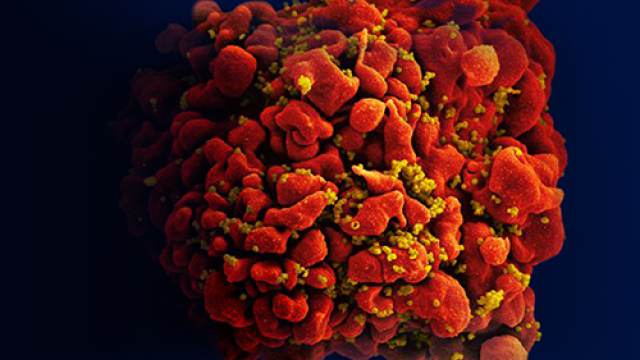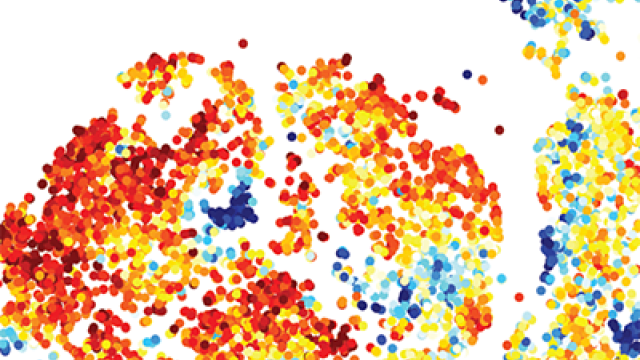A potential new marker for immunotherapy response could help guide treatment decisions.

CCR researchers found that people with the protein HLA-A*03 on their cells benefited less, as a group, when treated with immune checkpoint inhibitors compared to those with other HLA types. The presence of HLA-A*03 in patients beginning immunotherapy could raise an important red flag. The next course of action is to determine the biological mechanism that explains this observation. Credit: iStock
Immune checkpoint inhibitors and other cancer immunotherapies can empower the body’s immune system to fight tumors so effectively that they sometimes bring advanced cancers into long-lasting remission. But it’s hard to predict which patients will have lasting results.
As patients and their doctors consider whether to try immunotherapy treatments, a discovery from CCR scientists reported in The Lancet Oncology could help inform their decision. Researchers led by Senior Investigators Mary Carrington, Ph.D., and James Gulley, M.D., Ph.D., have found that people with a genetic marker called HLA-A*03 may be less likely than others to respond to immune checkpoint inhibitors. Up to 16 percent of people in the United States carry HLA-A*03.
“The incredible thing about immune checkpoint inhibitors is you get rapid, deep and durable responses in patients — but it’s only a subset of patients, and it does come with a potential cost of side effects,” Gulley says. “If there are patients that are less likely to benefit, that would be good to know up front.”
Immune checkpoint inhibitors work by releasing a natural brake on cancer-fighting immune cells. But for the treatment to shrink tumors, the immune system must be able to find its targets. That recognition depends in part on proteins called human leukocyte antigens (HLAs), which help alert the immune system when cells become infected or cancerous. There are thousands of different versions of HLA proteins. Every person carries the genes that encode three to six distinct versions of class I HLA molecules, and their particular set of HLAs helps shape how their immune system responds to specific threats.
“These genes are so central to the immune response,” Carrington says. “They are hugely polymorphic [meaning they come in different forms] and those polymorphisms determine how we respond to this virus or against this tumor.” It seemed likely, she says, that some HLA genes could either help or hinder the body’s response to immune checkpoint inhibitors. So, she teamed up with Gulley to find out.
After analyzing data from thousands of patients, they found that regardless of which type of cancer a patient had or which checkpoint inhibitor they had received, most people with the HLA known as HLA-A*03 benefitted less from the immunotherapy than people without HLA-A*03. Compared to other patients who received the same treatment, their survival after diagnosis was shorter and they saw their cancer return more quickly.
Mary N. Carrington, Ph.D.
Senior Investigator
Laboratory of Integrative Cancer Immunology
James L. Gulley, M.D., Ph.D.
Co-Director
Center for Immuno-Oncology
In one group of patients with kidney cancer, the team found that among patients with HLA-A*03, outcomes tended to be no better for people treated with immune checkpoint inhibitors than they were for people who received standard chemotherapy — even though the study had found that overall, immunotherapy was associated with longer survival times than chemotherapy. The researchers found no evidence linking HLA-A*03 to a poor response to chemotherapy.
While HLA-A*03 was associated with worse outcomes after immune checkpoint inhibitors overall, not every person with HLA-A*03 included in the analysis responded poorly to those drugs. Additional data from past and ongoing clinical studies will help researchers further assess HLA-A*03’s relationship to immunotherapy outcomes. Gulley and Carrington say that if the marker is validated as a reliable predictor of patient response, it could give patients and their doctors important information to consider alongside other predictive factors as they decide whether to choose an immune checkpoint inhibitor to treat their cancer.



